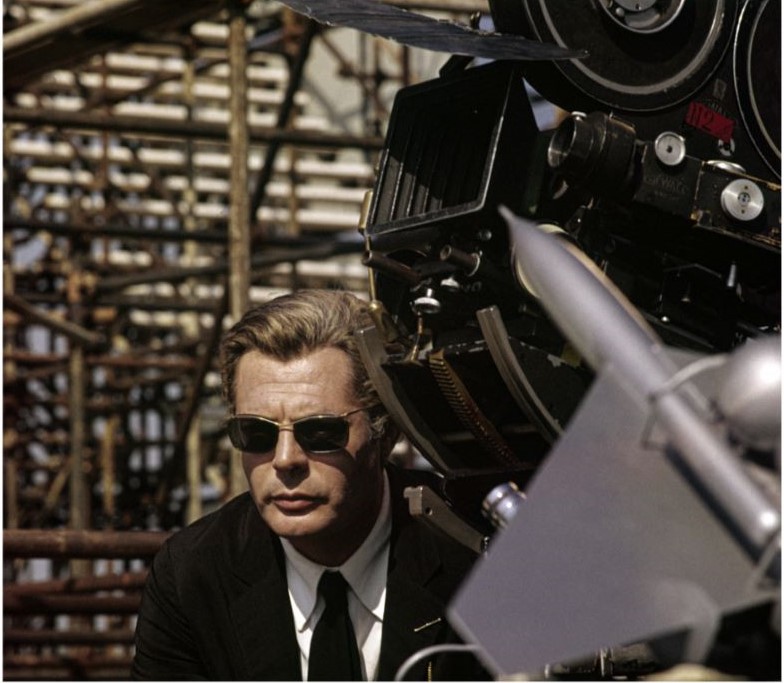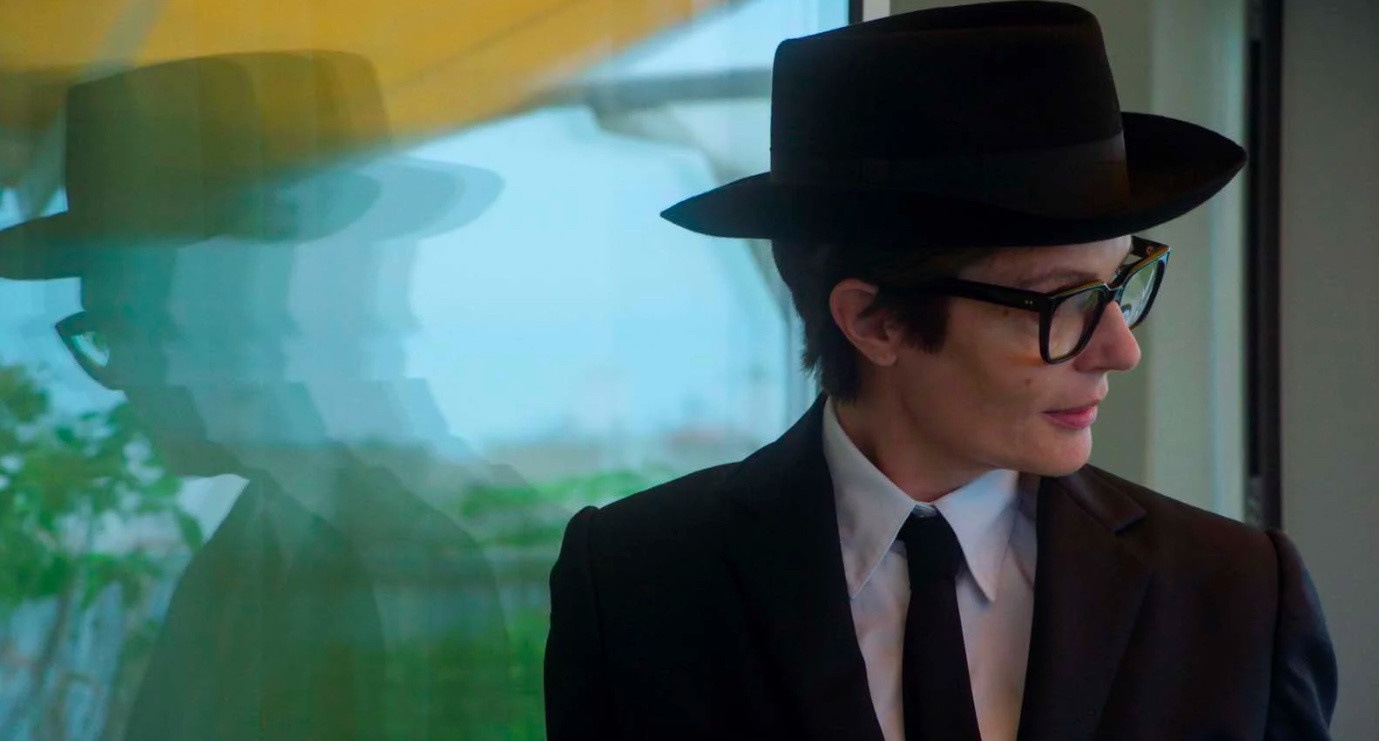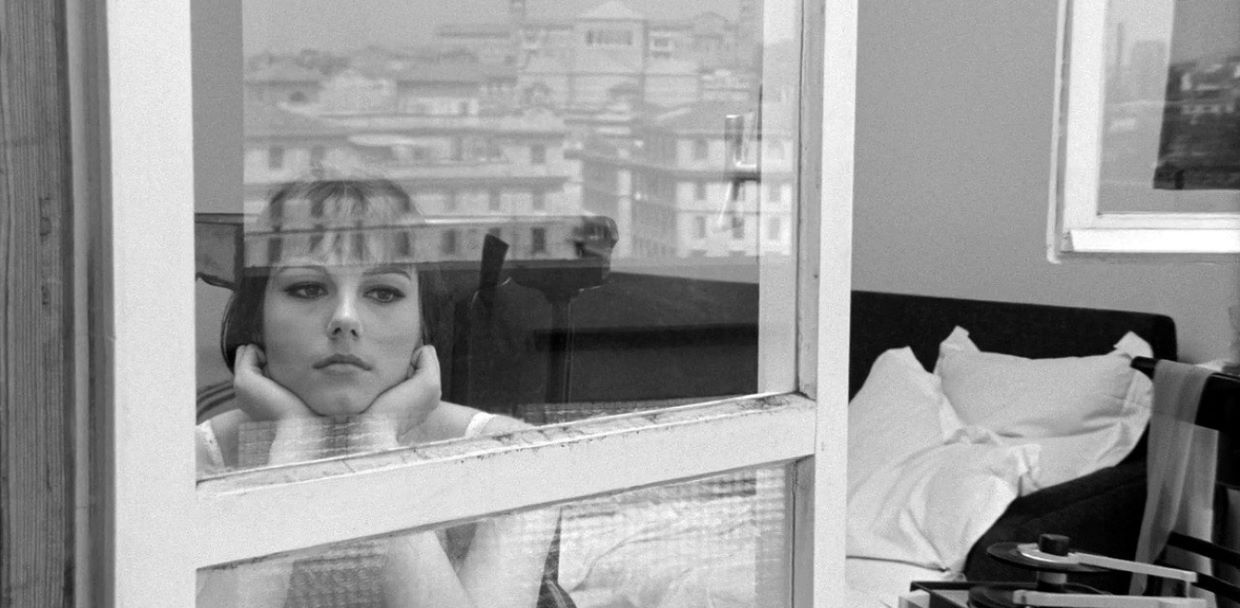Film
Between politics and pornography
The Italian Film Festival opens with biopic about Enrico Berlinguer

The Italian Film Festival has reached its 18th anniversary. Between the life of the founder of Eurocommunism and that of pornography diva Ilona Staller, better known as Cicciolina, the highlights, in addition to the latest news from transalpine cinema, include the tribute to Marcello Mastroianni on the centenary of his birth, the retrospective on the "unknown" Antonio Pietrangeli and the "focus" on Swiss cinema with Italian expression.
The Italian Film Festival reached the age of majority and, it is confirmed, this 18th edition is, most likely, the most political of all. The motto appears right at the opening session, on April 9 at Cinema São Jorge, with the Portuguese premiere of The Great Ambition (Berlinguer – La grande ambizione). The life of Enrico Berlinguer, founder of Eurocommunism and historic general secretary of the Italian Communist Party between 1972 and 1984, the year of his death, is revisited in the latest work by director Andrea Segre.
For the Festival’s artistic director, Stefano Savio, “Segre’s beautiful film is a tribute to a unique figure in Italian politics, a man who sought to find compromises and consensus between different political forces in the midst of the Cold War”. Starring Elio Germano, the film focuses on the period in the 1970s, between the trip to Sofia, in which Berlinguer suffered an attack that is still shrouded in mystery, and the speech given at Festa dell’Unità in Genoa in 1978, following the assassination of Christian democracy leader Aldo Moro, and which, in a way, signified the failure of the political strategy of the leader of what was, at the time, the largest communist party in Western Europe.

From the 1970s to the 1980s, the closing of the Lisbon edition of the festival – let’s not forget that the Festival travels from one end of the country to the other, and this year it passes through more than two dozen cities on the mainland –, on April 17 also at Cinema São Jorge, is done, according to Savio, with “an Italian-style Boggie Nights” (a reference to the 1997 film by Paul Thomas Anderson).
Premiered at the last Rome Festival, Diva Futura, by Italian-American director Giulia Louise Steigerwalt, follows the daily life of Gianni Schicchi’s agency, responsible for the fame of two porn stars who, years later, would shake up Italian politics: Ilona Staller, known worldwide as Cicciolina, founder of the Love Party and ex-wife of American artist Jeff Koons; and Moana Pozzi, who ran for mayor of Rome in the early 1990s.
“Pereira sono io!“
To mark the centenary of il divo Marcello Mastroianni (1924-1996), the Italian Film Festival has prepared a special programme that includes, in addition to the film screenings, two photography exhibitions about the career of one of the most famous actors in European cinema.

The first, on display at Cinema São Jorge during the Festival, is entitled Marcello come here… Cent’anni e oltre cento volte Mastroianni [… a hundred years and more than a hundred times Mastroianni] and brings together more than a hundred images, all in large format, from the photographic archive of the Cineteca Nazionale. The second comes as a complement to the screening of Anna Maria Tatò’s documentary, Mi recordo, sì io mi recordo, a “true artistic and spiritual testament” by the actor, shot in Portugal during the filming of his latest feature film: Viagem ao Princípio do Mundo, by Manoel de Oliveira. Through a set of photographs from various national and international archives, the actor’s career in Portugal is revisited, a country where, in addition to Oliveira’s film, he starred, shortly before, in Afirma Pereira, by director Roberto Faenza.
It is precisely to mark the 30th anniversary of the Faenza film, an adaptation of the novel of the same name by Antonio Tabucchi, that the Festival opens a section entitled Pereira sono io!, which reflects on the connection that Mastroianni established with Portugal in the final phase of his prolific career. Regarding the title of this programming space, Stefano Savio says that the exclamation “Pereira sono io!” was said by the actor to Tabucchi himself when he finished reading the book and learned of the intention to adapt it for the cinema.
This and other stories can be heard in greater detail on April 16, told by Roberto Faenza. The director will be in Lisbon to attend the screening of the film and the world premiere of the documentary Sostiene Pereira 30, by Augusto Pelliccia, which marks the 30th anniversary of its premiere.

But that’s not all. The Mastroianni centenary brings to the Festival, in national premiere, the new film by Christophe Honoré, Marcello Mio, with Chiara Mastroianni starring in “a surreal comedy where she herself lives as if she were her father”; and the return to the big screen of two of the actor’s emblematic films: 8 1/2, by Federico Fellini, and Una giornata particolare, by Ettore Scola (showing between April 11 and 14 at Cinema Fernando Lopes).
Still on the subject of the dazzling years of Italian cinema, writer and screenwriter Francesco Piccolo, author of the book La Bella Confusione, will be at the Festival on April 12, “to tell episodes that took place in 1963 between the sets of The Leopard [by Luchino Visconti] and 8 1/2 by Fellini, with Claudia Cardinale being fought over by two directors who did not like each other at all”.
The “unknown” Pietrangeli and the focus
on the cinema of Ticino canton
As part of the Festival, the retrospective Antonio Pietrangelie, esse desconhecido, begins on April 1st at Cinemateca Portuguesa, with the screening of Il sole negli occhi. According to the institution’s deputy director, Nuno Sena, “he is one of the great masters of Italian cinema, whose filmography deserves to be placed alongside that of other prominent Italian authors of the 1950s and 60s, but whose premature death will have, in a certain way, become secondary”.
“Filmmaker of women”, for having been “someone who filmed the female condition like few others, simultaneously deconstructing the myths associated with masculinity”, this retrospective consists of the 13 feature films that Pietrangelie directed between 1953 and 1968, the year of his death. Works such as Adua e le compagne, with the French actress Simone Signoret, La Visita, a film that gave Sandra Milo the interpretation of her life, and Io la conoscevo bene, with the unforgettable Stefania Sandrelli, confirm Pietrangelie as “one of the authors who best made the transition between neorealism and commedia all’italiana”.

Another “unknown” highlighted in this edition is Italian-language Swiss cinema. In collaboration with Swiss Film, the Locarno Festival and the Swiss Embassy, the Festival brings to Lisbon the acclaimed documentary on immigration, La prodigiosa trasformazione della classe operaia in stranieri, by Iraqi director Samir, and the disconcerting comedy Bon Schuur Ticino, by Peter Luisi, about a revolt by the people of Ticino against the obligation to speak French. In the section Il Corto, a set of short films originating from this Swiss canton are shown.
In addition to the Panorama section, dedicated to the great successes of Italian cinema from last year, the Festival includes, among others, a competitive section, with first and second works; the Sombras section, which this year combines historical and documentary archives with video art around the Portuguese and Italian decolonization processes; and an unmissable set of opera films, including Mario Martone’s breathtaking vision of Verdi’s La Traviata.